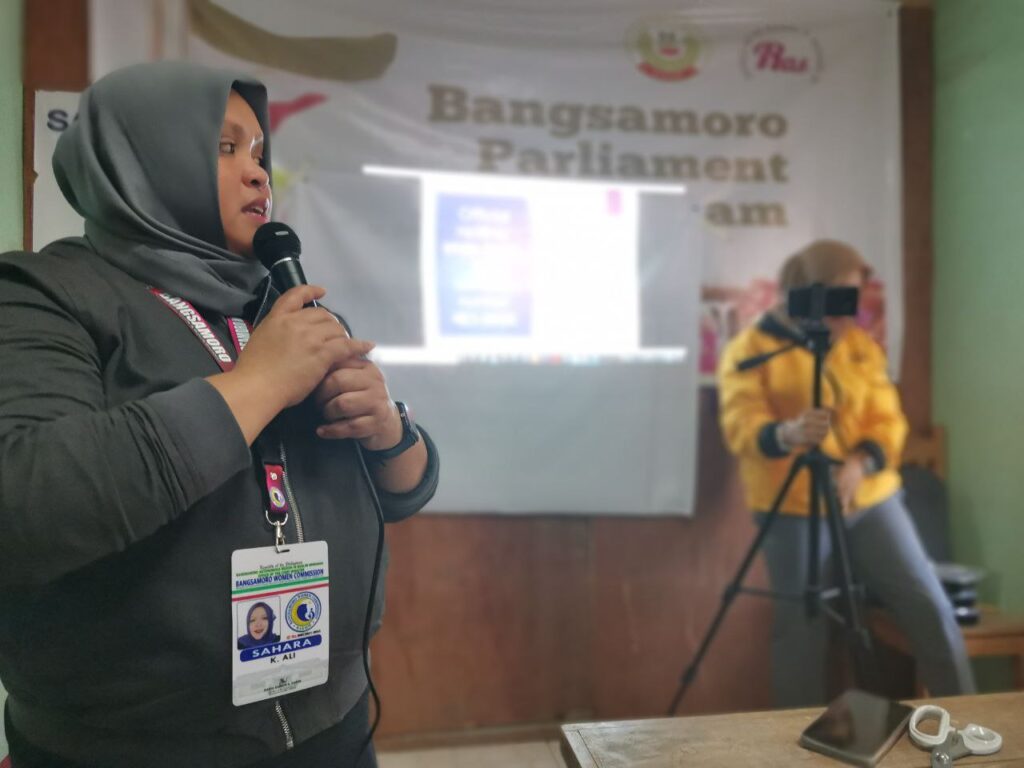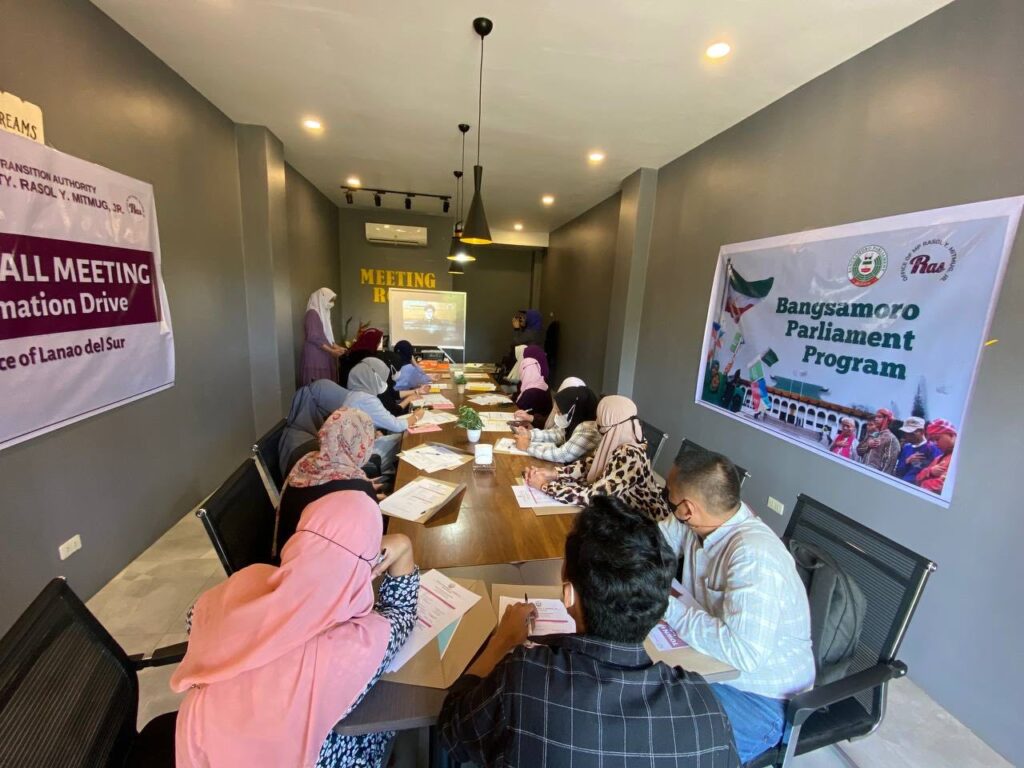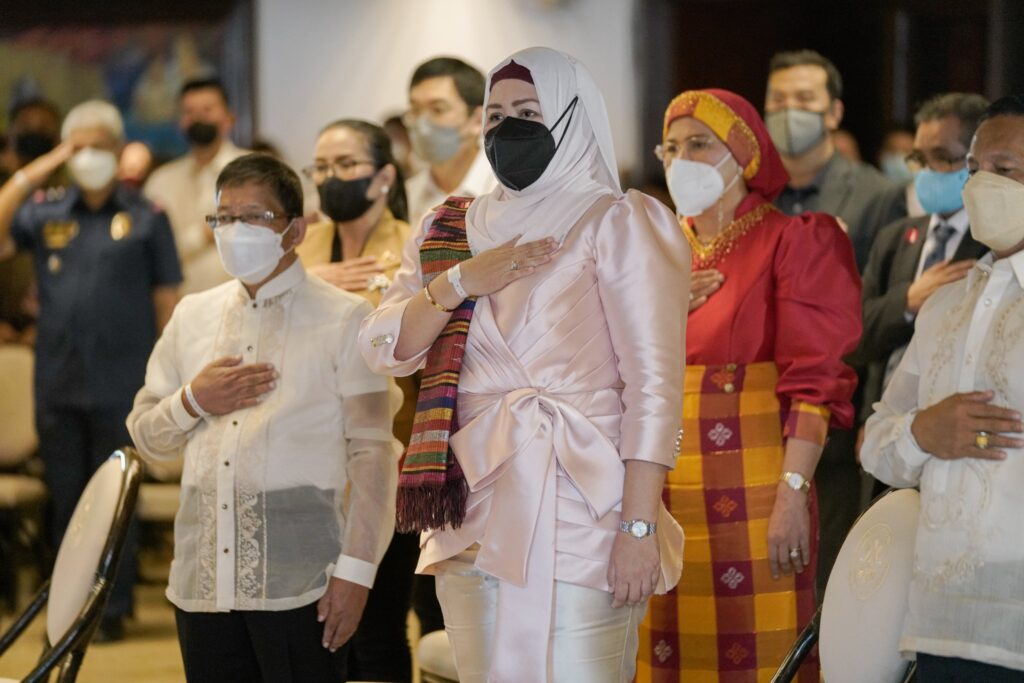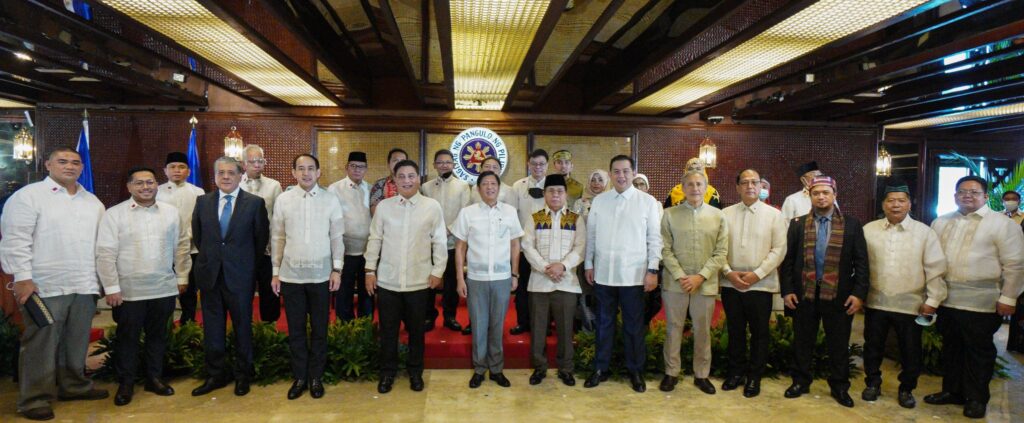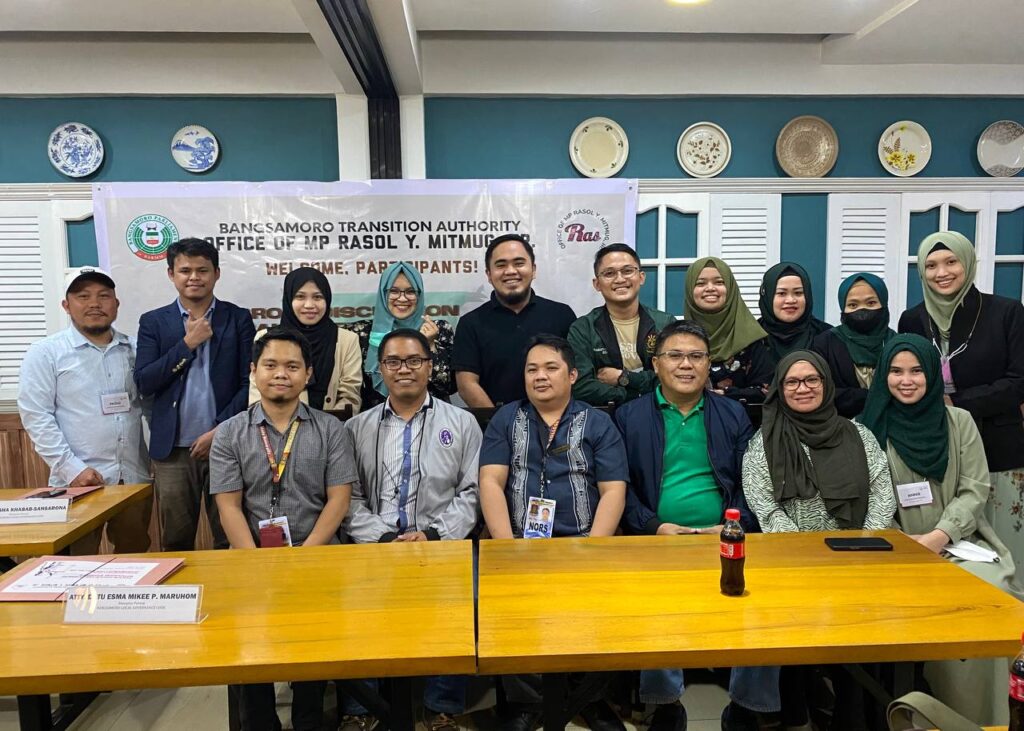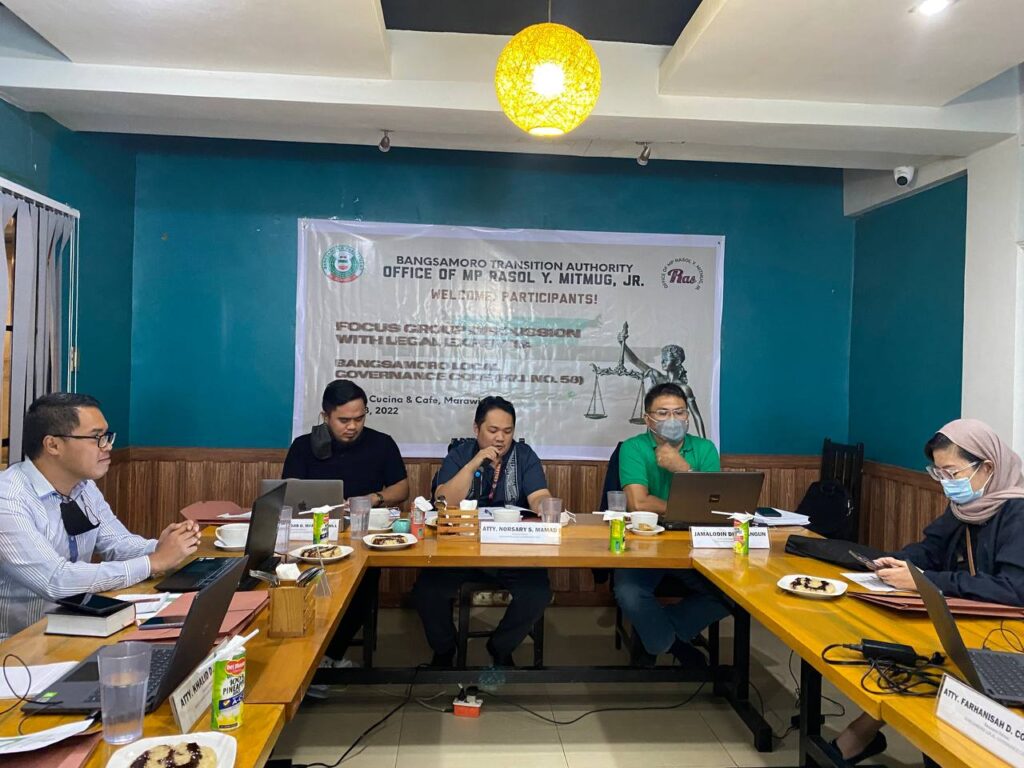Aiming to uplift the lives of the Bangsamoro, the Bangsamoro Autonomous Region in Muslim Mindanao (BARMM) expanded and augmented its assistance through its Transitional Development Impact Fund (TDIF). The TDIF allocated to the Office of MP Atty. Rasol Y. Mitmug Jr. was faithfully extended to various sectors in Lanao del Sur and Maguindanao.
The Office through the Ministry of Health (MOH) – BARMM turned over one mobile clinic to the Integrated Provincial Health Office of Lanao del Sur on July 5, 2021, and it conducted a medical outreach program in Brgy. Mapantao, Lumba Bayabao, Lanao del Sur on December 11, 2021. Moreover, it distributed a total of 12 digital duplicators to various municipalities in Lanao del Sur and Maguindanao. Municipalities who were beneficiaries of the duplicators are the following: Kapatagan, Marantao, Taraka, Maguing, Lumba Bayabao, Brgy. Sagonsongan, Marawi City and Municipality of Parang, Maguindanao with the Ministry of Basic, Higher, and Technical Education (MBHTE) under the 2020 TDIF.
Together with the Ministry of Public Works and Highways-Lanao del Sur (MPW-LDS), the Office also conducted site visits to various areas in identified municipalities for the installation of solar streetlights.
Meanwhile, the Office distributed four (4) WD Tractor (100 Hp) with farm implements with 100 disc plows, disc harrows, trailers, and other farm equipment to BARMM farmers in the Municipality of Tuburan and Sumisip in Basilan. Under the same program, the Office also provided financial assistance on the procurement of fruit seedlings—lanzones, rambutan, banana lakatan, durian and mangosteen— to the Malibacao Agricultural Cooperative of the South Upi, Maguindanao through Free-Range Chicken Raising and Goat Raising projects. Same assistance was extended (Goat Raising) to the Masiu Farmers Producers Cooperative of the Talub, Masiu, Lanao del Sur with the Ministry of Agriculture, Fisheries and Agrarian Reform (MAFAR).
The Office was also given opportunity to offer educational assistance through the Ministry of Indigenous Peoples’ Affairs to Henry B. Sangcayao Jr. of Brgy. Kibucay, Upi, Maguindanao, Amichell M. Rubio of Remepes, Upi, Maguindanao, and Janine Alexis G. Andres of Nuro, Upi, Maguindanao. Each beneficiary received monetary assistance worth 15,000.00 for their education.
In addition, MP Mitmug extended assistance to the beneficiaries of Bangsamoro Rural Employment through Entrepreneurial Development (BREED), in particular, the Babsan Service Cooperative, Darul-Arham Livestock Producer and Cooperative, Ikram Agriculture Cooperative, Lumba Marantao Farmers and Fisherfolk Producer Cooperative, OISCA Farm Multi-Purpose Cooperative, Panabang Youth Service Cooperative, Ranaw Rizki Marketing Cooperative (Bangsamoro Sustainable Farming Agriculture Products), Taliong Marketing Cooperative, Tuca Sisterly Cooperative, Ittihad Cooperative, Datu Mitmug Farmers Association, Gambai Salam Producer Cooperative, Lobo Basara Farm Cooperative, Mabuhay Lumba Bayabao Marketing Youth Cooperative, Tacder Marketing Cooperative, Barlins Farmers Agri Cooperative, Farm of Hope Producer Cooperative, Shafaat Agriculture Cooperative (Mushroom for Change), Kapitan Laut Boisan Multi-Purpose Cooperative, Panamar ko Ranao Marketing Cooperative, Save Lanao Agri Farm Agricultural Cooperative, Bagoenged Proper Agriculture Cooperative, Nalkan Initiative Agriculture Cooperative, Golden Harvest Farmers Marketing, Bilhhikma Farmers Marketing Cooperative and United Bangsamoro Magungaya Producers Cooperative. The goal of this project is to provide start-up capital to support the organized rural workers’ associations in generating employment opportunities in the communities of Lanao del Sur.
As part of the June celebration of the Philippine Environmental Month (Proclamation No. 237, s. 1988), the Office conducted a Tree Planting Program through the Ministry of Environment, Natural Resources and Energy at Lanao Agricultural College, Lumbatan, Lanao del Sur last June 2, 2022. The said project was availed through the 2021 TDIF. Part of the advocacy of this Office is the preservation of the region’s environmental resources.



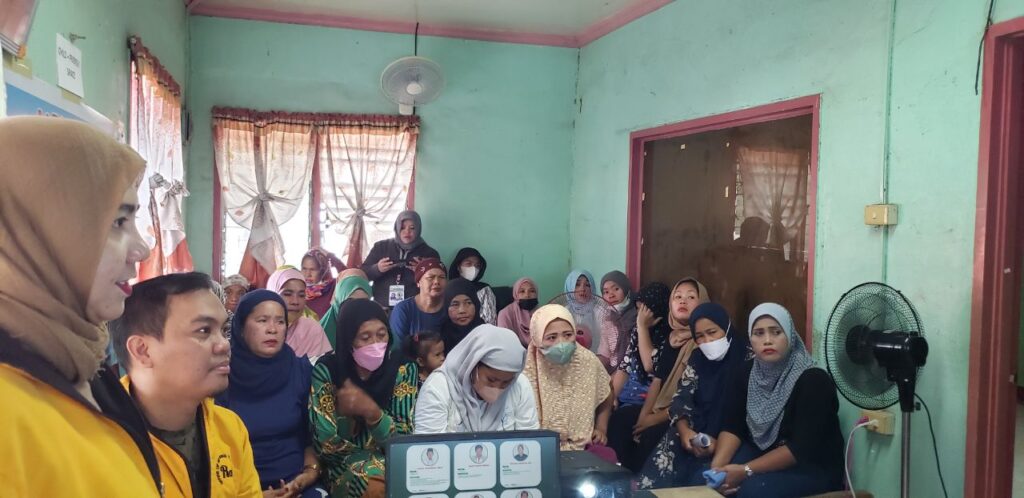 Kabilang sa tinalakay ng mga speakers ay ang mandato ng BTA at ang sistema nito. Ipinakilala rin ang mga bagong opisyales ng Bangsamoro government pati na rin ang mga bagong hirang na members of the parliament. Binigyang diin din sa diskurso ang ilan sa mga pangunahing polisiya ng gobyerno.
Kabilang sa tinalakay ng mga speakers ay ang mandato ng BTA at ang sistema nito. Ipinakilala rin ang mga bagong opisyales ng Bangsamoro government pati na rin ang mga bagong hirang na members of the parliament. Binigyang diin din sa diskurso ang ilan sa mga pangunahing polisiya ng gobyerno.